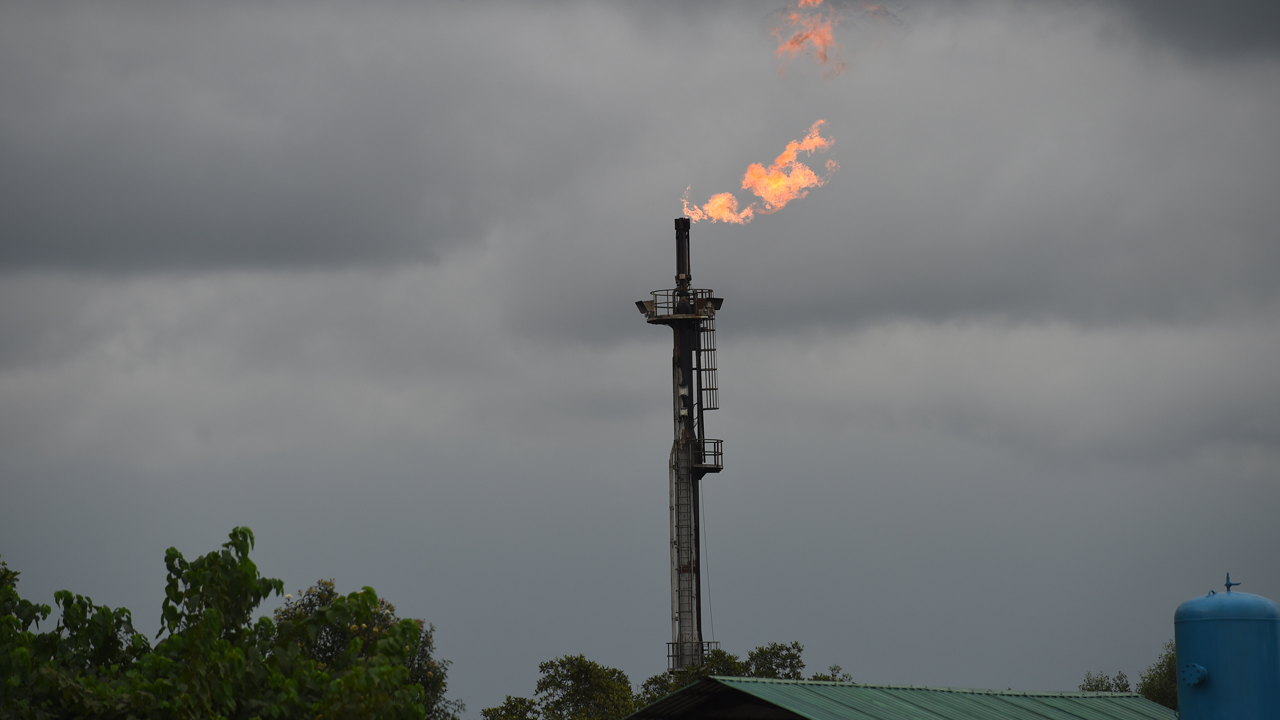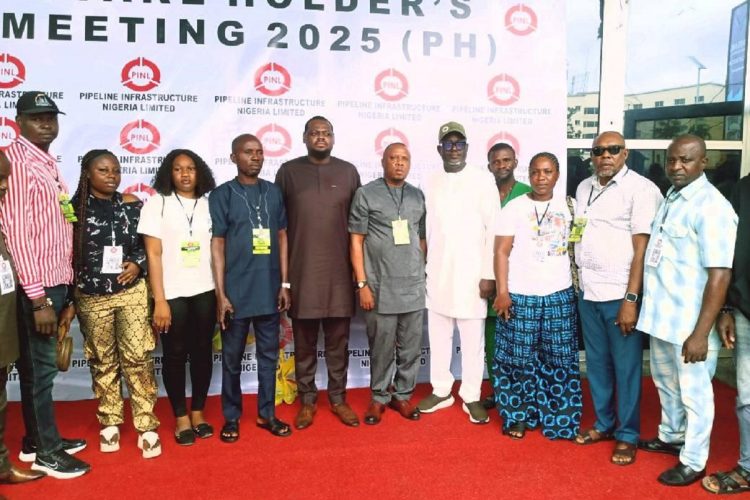Niger Delta Economic Prosperity Framework
August 31, 2018
PIGB detrimental to Niger Delta’s interest, stakeholders insist
September 3, 2018
By Chimezie Anajama
Eka Emma is a street food vendor. Daily, except on Sundays, she cooks white rice, stew, porridge beans, Edikaikong and Afang soups, boiled plantain and potato, and pepper soup for her teeming customers that are mostly young workers. She also owns a shop where she retails provisions in the daytime. In the evening, when workers are returning from work, fagged out with fatigue, she stands a large wooden table beside the shop, with her brown food coolers on top. She understands the nutritional needs of the tired workers and tries to satisfy them in her small way with her cooking.
Behind her shop is an unpainted bungalow; in one of the rooms, she shares with her household of four, including her husband and a nephew. Her nephew, Wisdom, is a junior student in a public secondary school nearby. Every day, before he sets off to school, or in exceptional cases when he returns in the afternoon, Eka Emma insists that he must use their rusty wheelbarrow to dispose of the family and her business’ refuse for the day. Walking a distance of 1km or less, Wisdom pushes the worn-out wheel-barrow filled with transparent and black sacks of refuse, tightened at their mouths, making creaky sounds along uneven rocky street paths. Passing farmlands, mini plantain plantations, and trees of different compounds and other streets, he connects to the famous IBB Way that stretched to Itam (where the busiest market in Uyo, Itam market, is located). A metal dumpster is placed at an arc, adjacent to the main road, which is managed by Akwa Ibom State Environmental and Waste Management Agency. As he goes, he hails his friends who are also pushing their family refuse to this spot.
This is a glimpse of the sanitation coping mechanism deployed by an average Uyo family to keep their environment clean in the face of the failure of the state government in effectively managing household wastes via provision and maintenance of sanitation facilities and waste bins at their doorsteps. At the popular IBB Way alone, between Aka road where the road began and Akwa Ibom State Secretariat junction where it ended, there are two government-managed dumpsters and dirt picking points where residents of Akpa Ube, Ofot clan, and some parts of Federal Housing Estate, Abak road – a combined estimated population of more than I,500 residents – come to dispose their household wastes in wheelbarrows and towing sacks.
As an Uyo resident
I first experienced this act of resilience in my former neighbourhood in Akpasak Estate, Mbiabong Etoi community, in 2016, during my one year of National Youth Service (NYSC). As a new resident that migrated from Abuja (Nigeria`s capital), where I spent the greater part of my childhood and was disposed to trolley green waste bins stationed in front of each building on each street and usually picked up by government sanitation agency on weekdays, the only stress I had to cover then was the distance from my apartment to the gate of the building I resided. This is still the present arrangement in Nigeria`s capital where household wastes of the city dwellers are managed by Abuja Environmental Protection Board (AEPB). At Uyo, one could only imagine my culture shock in my first few months as I got acculturated in travelling for miles with the rest of my neighbourhood to dispose my waste in a public dumpster on the Etoi side of Oron road.
Uyo–the capital of oil-rich Akwa Ibom State–is among the top 3 cities of Nigeria in infrastructural development. It is a high performer in the index of beautiful, clean and safe Nigerian cities. Though a melting point to the three major groups indigenous to Akwa Ibom State (Annang, Oron, and Ibibio nations) and foreigners as well, Uyo is mostly associated with the Ibibios whose culture deeply extols cleanliness as a value every household must strive to uphold. The uniqueness of the city dwellers` resilience in keeping their city clean lies in the evolution of the act into a system, built through years of constant practice, and easily transferred to new residents and younger generations as demonstrated by Wisdom`s dedication in disposing of his family`s waste daily. Easily replicated from one community to another in bridging the leadership failure and gap from Akwa Ibom State government in providing effective sanitation facilities and system to over 600,000 residents of the city, it has become the most effective and widely practiced system of sanitation that makes each household and community to be responsible and accountable for their waste.\
ALSO READ: What does it mean “to serve Nigeria with all your strength?”
Chevron unveils Discovery Learning Alliance (DLA)
Akwa Ibom Govt: Over 2 million pencils sold in 1 year
In Nigeria, while her major cities are grappling with deep sanitation and environmental challenges ranging from dirt-cluttered gutters that cause flooding, abysmal litters of streets with wastes, lack of citizen and government commitment to cleaner environment and so on, as witnessed recently in Lagos (the largest Nigerian city) where the Cleaner Lagos campaign was met with stiff non-compliance as a result of the absence of citizens` buy-in and alleged irregularities from constituted authorities, or in Owerri, the second largest city in South-eastern Nigeria where every nook of the city is cluttered with lumps of dirt, unattended and left at the mercy of the elements. Uyo dwellers` resilience in making their city a clean haven, therefore, shines blue moonlight in what citizens could achieve on their own when committed to creating a cleaner and safer environment in absence of government interventions.
State government’s commitment
Compared to her neighbouring cities of Aba and Port-Harcourt where sanitation and environmental cleanliness are crassly ignored by the state governments` apparatus which led the two cities categorized among Nigeria`s dirtiest cities, Akwa Ibom State government could be said to exhibit concern (though shallow) for Uyo`s cleanliness. For example, as a way of deepening the city`s sanitation and cleanliness culture, the state government legalized observance of every last Saturday of the month as the city`s monthly sanitation day since February 2016. Thus far, it is religiously observed, with offenders tried in the Environmental court of the state. The last known trial was held in January 2018 that witnessed convictions and fines. In addition, Akwa Ibom State Ministry of Environment through its Green Brigade daily sweeps the city roads and cuts grass while Akwa Ibom State Environmental and Waste management Agency deploys its compactor trucks to pick the city`s wastes from dumpsters spread across. But these are only as far as the state government`s concern goes.
Abundantly rich in crude oil (Nigeria`s main source of revenue), Akwa Ibom State, with of population of 5,482,177 persons as of 2016 by Nigeria Population Commission (NPC), was the highest earner of Nigeria`s Federal Government revenue allocation in 2017 at the tune of over $398M. The quarterly report data of Nigeria Extractive Industries Transparency Initiative (NEITI) in the first quarter of 2018 also showed that the state has netted in over $141M between January-March 2018. But this wealth has failed to reflect in the financing of the environment sector of the state – a poor decision of the state government considering the geographical positioning of the state along the coast of Atlantic Ocean which exposes it to increasing effects of climate change with re-occurring symptoms such as flooding. The state is also considered to be a top 5 receiver of rainfall in West Africa, and as a result, erosion is a constant environment challenge. The loss of economic livelihoods and environmental degradation associated with it over the years has led to the state being co-opted in the beneficiary list of World Bank funded Nigeria Erosion and Watershed Management Project (NEWMAP) implemented by Nigeria`s Federal government.
This poor financing is further demonstrated in the 2018 appropriation law of the state with fiscal value of over $1.793B where environment failed to make the list of sectors the state government considered as part of its policy thrusts; Environment was allocated a mere $7.75M while Personnel cost was stretched to $147M – for a less populated state.
Uyo residents have demonstrated their willingness to keep their environment clean, more than they should. The time has come for the stakeholders on the supply side of government to further drive this by strengthening their commitments to the environment.
About the author
Chimezie Anajama is a sociologist, development practitioner, and writer. She is currently the Communications and Stakeholder Engagement lead, Policy Alert. She writes from Uyo. Find her on Twitter, @MsChimezie
Disclaimer: The opinions expressed in this article are those of the author not of NDLink









